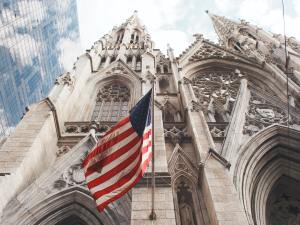Of Artificial Intelligence and Scripture
June 21, 2023 Leave a comment
Photo by James Coleman on Unsplash
One of the latest artificial plans of those who apparently despair of human intelligence is to create new “scripture” via artificial intelligence. The goal is to have a computer create text of a new Bible for a contrived religion intended to unite mankind.
This would not be the first time that someone has tried to counterfeit the things of God. It will surely not be the last time. Like all previous efforts, it will likewise fail, but not likely escape imitation, and succeed more in dividing than uniting people.
Even if all the best computers with all the linguistic input available were employed, the most that might be produced would be a product of the world, no more than worldly scripture. That would fall as far short of heaven as did the ancient tower of Babel, both mere displays of the hubris of those who consider their own intelligence so great that they can ascend to the place of God. Neither effort could ever rise beyond the world.
AI scripture—and the humans behind it—misses the whole point about scripture, divine scripture. The source of true scripture is the living God. Messages from heaven are intended to establish communion with heaven. We surely need such communion, today more than ever. God is eager to engage in meaningful interaction with any person who sincerely seeks it.
Replacing the reach to God with electronically derived impulses, however, is a short circuit. Nothing worldly can create heavenly communion; nothing worldly can transcend the world. God our Father, however, steadily reaches out from heaven. He has made communication simple, through faith and prayer, prayer that He answers. The examples of successful communication, ancient and modern, are abundant, accessed by all races and all ages. This I have known since my mother taught me.
Perhaps someone might suggest a contest: let AI masters produce some “scripture,” and a prophet of God produce some scripture; then in a secret, “blind test,” see whether anyone can discern the difference. Again, that would be a failed exercise. Divine scripture is just the opposite of secret. It is plentifully provided from God through prophets He has chosen and acknowledged, His word presented to the world openly. Its value has ever been available for divine affirmation through many spiritual trials and manifestations applied by those who in faith receive it. There is nothing artificial or contrived about heavenly scripture and the connection it yields with the God of heaven.
The ostensible purpose of an AI Bible, to write a scriptural text that all can accept, has it all backwards. How can a worldly creation do that? AI scripture could not escape a worldly focus, a focus of which there is no earthly example of uniting mankind. Mao tried it with his little red book, which after nearly destroying his people even he and his successors abandoned. Lenin, Stalin, Hitler, and Mussolini gave it their best efforts, with more than a hundred million people united in death.
The point is not to change scripture but rather to embrace it. The purpose of holy scripture is to guide people to a change of life, from a worldly focus to a heavenly focus, becoming the kind of people whom God can accept and receive into joy.
To do that, the Father of us all sent down from heaven His only begotten Son, Jesus Christ, to show us how. The Son offered to each the power to make that personal change, based upon the love of God and of all mankind. No computer program can match it.


